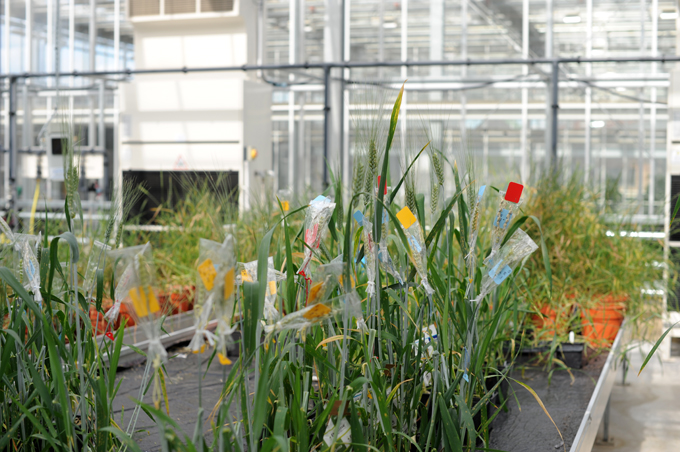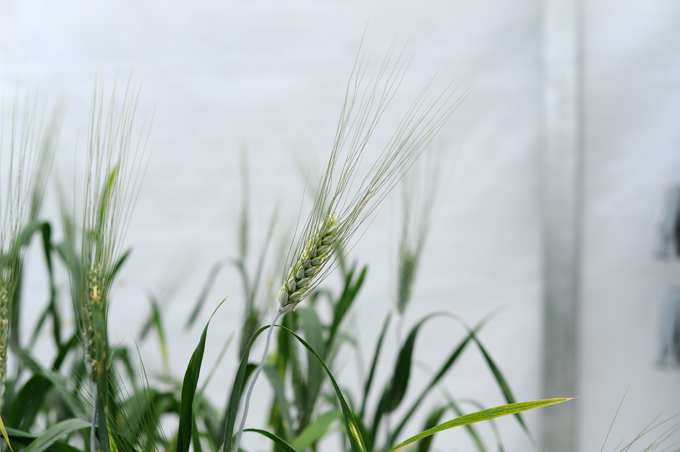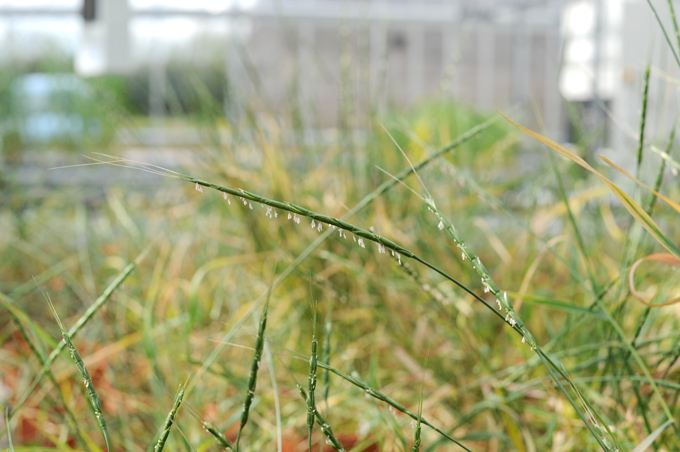Could crossing ancient varieties hold the key to the future of feeding the planet more sustainably?
Heritage grains are the buzz words in sourdough right now, but there is much more to these ancient grains than just great flavour, they may well hold the answer to feeding the world as climate change, pests and diseases increasingly threatens the yields of existing varieties.
I’ve been captivated by heritage grains for a long time, and part of my interest in the history of sourdough is the history and origins of wheat. Perhaps the single most interesting discovery for me has been the diversity of ancient bread. The flour milled from heritage grains produces incredible sourdough, which are as far away from the uniform white mono flavour of modern bread as you can get. Ancient grains produce bread that are not just rich in texture, but bursting with complex flavours, but I was fascinated when I heard about Wheat breeder Phil Howell at NIAB, crossing ancient grains I went to find out more, and discovered a whole lot more about wheat and how we are going back to beginnings of wild grass to redevelop modern wheat.
I recorded my interview with Phil to write this article, and it seemed a shame not to share the story on Audio, so I have also included both the Audio and my article.
From wild grass to cultivated crop.
Around 100,000 years ago the grain that now provides one in every five of the calories consumed across the world took its first steps. The initial grain involved was Einkorn (First corn), which lead to Emmer. Emmer then crossed with goatgrass which led to spelt around 10 000 years ago and then spelt was domesticated to give bread wheat. There are in fact spelt lineages, an Asian spelt (which follows the classic story of wild emmer being pollinated by wild goatgrass, and from which modern bread wheat was possibly domesticated) a European spelt (which seems to involve crosses between the hexaploid Triticum compactum, which probably mutated out of bread wheat, and the tetraploid cultivated emmer, Triticum dicoccum). Archaeologists have dated European spelt to around 4000 years ago, which was first found around the Swiss lakes, whereas the Asian spelt is much older with samples found in the Levant around…yes, 9000 years ago. There are those who do not belive that that spelt is actually the true ancestor of bread wheat, because there was another short-lived long extinct hexaploid with a similar genetic architecture. But the truth is that the timeline/origins part is all very contentious and prone to (mis)interpretation.
What we do know for sure is that the early crosses between wild grass species were what lead is to the wheat we now use every day as flour for our bread.

But man took over what nature started and continuous selection and breeding from the land races in the late 1800’s to modern seed conglomerates that now provide the world with grain to plant has lead to a narrow selection of high yielding varieties means that modern wheat now has a problem.
The genetic diversity of the first wheat plants has been reduced to a point where breeders are worried that there may not be enough variation to cope with changing demands. Faced with the pressures of feeding an ever growing global population, adapting to the more extreme weather condition of a changing climate, and calls for more sustainable farming techniques, it’s not surprising that researchers are looking for new sources of genetic diversity to breed wheat varieties for the future.
Funded by the UK Biotechnology and Biological Science Research Council, (BBSRC) The Wheat Improvement Strategic Programme (WISP) is a collaboration of research institutes and universities set up to address the issues of food security and sustainability of the UK’s wheat crop. Phil Howell is one of the scientists involved in the research programme. Working at the National Institute of Agricultural Botany (NIAB) in Cambridge, he is carrying out breeding trials aimed at producing new varieties that will tolerate extreme conditions and provide increased yields. But rather than looking solely at modern wheat varieties, Phil and his team are also using the genetic diversity found in ancient grains. “We’re recreating the event that led to bread wheat, which happened in the wild 10,000 years ago” he explains, “and that allows us to access a whole set of diversity from another grass species.” This species is wild goat grass, native to the area around the Caspian Sea and one of the ancestors of our modern wheat.

In addition to the wild goat grass, the NIAB research team is looking at other early wheat varieties, thing like emmer, rivet wheat and durum wheat, for new sources of genetic diversity. The breeding programme aims to develop new varieties using techniques that combine the best traits of modern and ancient varieties. High yielding modern wheat is genetically very uniform, lacking the variability needed to cope with the climatic stresses, pests and diseases they encounter. The genes of these older types of grain may well have traits that allow wheat breeders to keep one step ahead of the pests and erratic weather. And with an agricultural system that’s highly dependent on artificial fertilizers and pesticides, any genetic traits that allow the plants to make better use of the natural resources available are going to be an advantage, both financially and in terms of sustainable food production.
In the large NIAB greenhouses, breeding trials begin by making crosses between selected ancient grains and modern bread wheat. The resulting seeds are grown on under controlled conditions and assessed. With the greenhouse providing constant mid-summer conditions and a cold room to simulate winter, the researchers are able to grow two or three generations in a single year. Greenhouse benches are full of pots containing wheat plants at different stages of growth. As the plants mature, their height, strength and overall vigour is measured, as well as how much grain they produce. Despite careful selection of the parent plants not every breeding trial is going to produce offspring with the traits the research team is looking for. As Phil says “There’s far more variation in the goat grasses than there is in bread wheat. A lot of that will be useless, but there will be some gems in there.”
Work in the greenhouse is followed by field trials for the most promising strains. While the growing conditions under glass can be controlled, out in the fields the plants experience whatever the weather throws at them and can be better assessed for their potential for large-scale cultivation. Some of the first strains the team have developed are being run through a series of trials using both conventional farm levels of fertilizer and much lower levels. Measurements of growth and yield have shown that reduced fertilizer levels does adversely affect these new varieties, but some of them are showing better yields than the varieties that are currently grown commercially. “So there’s something about them that suggests they are better at scavenging for the nutrients from the soil” explains Phil. This may be related to the fact that the older grains have roots that grow much deeper down into the soil, allowing them to access both water and nutrients that wouldn’t be available to the shallower rooted modern varieties.

For many bread bakers the big question is, of course, whether these new varieties will bring more flavour to their loaves. “To be honest we don’t know,” says Phil, but goes on to explain that he’d be very surprised if they didn’t. It will be some time before we can test this though. Plant breeding is a long term enterprise, and it may be 20 years before we’re baking with flour milled from the wheat developed from this project.




 Can baking & eating sourdough help lower stress?
Can baking & eating sourdough help lower stress?
I really enjoyed reading/listening to this article. Thank you, Vanessa! /Stay safe
The crossing of these varieties will only lead to short term gene mining and spell the death knell of the priceless resource.
Why not use blended flour it keeps the lines distinct and protects the heritage lines.
It’s about staying ahead of the viruses ..
You cannot beat them but only tolerate them better.